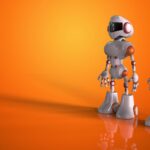In an era where artificial intelligence (AI) is reshaping industries and job markets at an unprecedented pace, the question on many minds is: How can I ensure my skills remain relevant and valuable? This article aims to provide you with a comprehensive guide to building a future-proof skillset that will not only withstand the AI revolution but thrive alongside it.
Understanding the AI Landscape
Before diving into specific skills, it’s crucial to understand the current AI landscape and its trajectory:
AI’s Current Capabilities: As of 2024, AI excels at tasks involving pattern recognition, data analysis, and repetitive processes. For instance, AI-powered tools like GitHub Copilot can generate code snippets, while platforms like Midjourney create stunning visual art from text descriptions.
AI’s Limitations: Despite rapid advancements, AI still struggles with tasks requiring complex reasoning, emotional intelligence, and creativity. A 2023 study by MIT showed that while AI could match human performance in data analysis tasks, it significantly underperformed in scenarios requiring nuanced interpretation of social cues.
Skills That Complement AI
1. Creativity and Innovation
While AI can generate ideas based on existing data, true innovation often requires “thinking outside the box” – a uniquely human trait.
Real-world example: In 2024, the award-winning advertisement campaign for a major eco-friendly brand was conceptualized by a human creative team. They used AI tools for data analysis and image generation but relied on human creativity to craft the emotionally resonant storyline that captured global attention.
How to develop:
- Practice divergent thinking exercises daily
- Engage in creative hobbies like writing, painting, or music
- Participate in innovation workshops or hackathons
2. Emotional Intelligence (EQ)
As AI takes over more analytical tasks, the ability to understand, use, and manage emotions effectively becomes increasingly valuable.
Case study: A 2023 survey by Deloitte found that companies prioritizing EQ in leadership training saw a 25% decrease in employee turnover and a 20% increase in customer satisfaction scores.
How to develop:
- Practice active listening in your daily interactions
- Keep an “emotion journal” to increase self-awareness
- Take online courses on emotional intelligence (e.g., Yale’s popular “The Science of Well-Being” on Coursera)
3. Critical Thinking and Complex Problem Solving
While AI can process vast amounts of data, interpreting that data and making strategic decisions often requires human judgment.
Example: In the 2024 Mars rover mission, AI systems flagged an anomaly in the soil composition data. However, it was a team of human scientists who critically analyzed this information alongside historical data and theoretical models to hypothesize the presence of microbial life, leading to one of the most significant scientific discoveries of the decade.
How to develop:
- Engage in debate clubs or discussion forums
- Practice solving logic puzzles and brain teasers
- Take courses on philosophy and logic
4. Adaptability and Lifelong Learning
In a rapidly evolving technological landscape, the ability to learn, unlearn, and relearn is paramount.
Statistic: According to the World Economic Forum’s 2024 Future of Jobs Report, 50% of all employees will need to reskill or upskill by 2025 to keep pace with technological changes.
How to develop:
- Set aside dedicated time each week for learning
- Experiment with new technologies or methodologies in your field
- Attend industry conferences and workshops regularly
5. Ethical AI Awareness
As AI becomes more integrated into daily workflows, understanding ethical considerations around data privacy, bias, and fairness is crucial.
Real-world impact: In 2024, a major tech company faced significant backlash when their AI-powered hiring tool was found to be biased against certain demographic groups. This incident highlighted the critical need for professionals who can navigate the ethical implications of AI implementation.
How to develop:
- Take online courses on AI ethics (e.g., “AI for Everyone” by Andrew Ng on Coursera)
- Stay informed about the latest regulatory developments in AI
- Participate in workshops or seminars on responsible AI development
6. Mental Resilience
Adapting to rapid technological shifts can be stressful. Developing mental resilience is crucial for thriving in an AI-driven world.
Case study: A 2023 study published in the Journal of Occupational Health Psychology found that employees with high levels of mental resilience were 30% more likely to successfully adapt to AI-driven changes in their workplace.
How to develop:
- Practice mindfulness techniques like meditation
- Engage in stress management workshops
- Seek coaching on change management strategies
- Cultivate a growth mindset through reading and self-reflection exercises
Technical Skills Worth Acquiring
While soft skills are crucial, certain technical skills can significantly enhance your value in an AI-driven job market:
1. Data Literacy and Analysis
As AI systems generate and process more data, the ability to interpret and derive insights from this data becomes invaluable.
Real-world application: In 2024, a mid-sized retail company implemented an AI-driven inventory management system. However, it was the data-savvy operations team that interpreted the AI’s output, considering local market trends and customer behavior, leading to a 30% reduction in overstock and a 15% increase in sales.
How to acquire:
- Take online courses in data analysis (e.g., Google’s Data Analytics Professional Certificate on Coursera)
- Practice with real-world datasets on platforms like Kaggle
- Learn tools like Python, R, or Tableau for data visualization
2. Programming and AI Literacy
While not everyone needs to become a software engineer, basic programming skills and an understanding of AI principles can be incredibly valuable.
Case study: In 2023, a marketing professional with basic Python skills automated several repetitive tasks using AI APIs, increasing her team’s productivity by 40% and earning a promotion to Head of Digital Marketing.
How to acquire:
- Start with beginner-friendly programming courses (e.g., CS50 from Harvard on edX)
- Take an introductory course on AI and machine learning principles
- Experiment with AI tools and APIs to understand their capabilities and limitations
3. Human-AI Collaboration
As AI becomes more integrated into workflows, the ability to effectively collaborate with AI systems will be crucial.
Example: In the legal industry, AI-powered document review tools are becoming commonplace. Lawyers who can efficiently use these tools while applying their legal expertise to interpret results are in high demand, often commanding 20-30% higher salaries according to a 2024 legal industry report.
How to acquire:
- Familiarize yourself with AI tools in your industry
- Participate in AI implementation projects at your workplace
- Take courses on human-computer interaction and user experience design
4. Industry-Specific AI Applications
Understanding how AI is transforming your specific industry can give you a significant edge in your career.
Healthcare example: In 2023, a group of radiologists collaborated with AI engineers to develop a system that could detect breast cancer earlier than traditional methods. This breakthrough came from blending deep medical knowledge with an understanding of AI capabilities.
Finance example: AI-driven algorithmic trading and fraud detection systems are becoming standard in the financial industry. Professionals who understand both finance and AI are highly sought after.
How to acquire:
- Research AI applications specific to your industry
- Attend industry-specific AI conferences or webinars
- Collaborate with AI teams in your organization to understand implementation challenges and opportunities
5. AI-Assisted Creativity
For professionals in creative fields, learning to leverage AI as a collaborative tool can enhance productivity and spark new ideas.
Case study: In 2024, a bestselling novel was co-written by an author and an AI system. The author used the AI to generate plot ideas and character backgrounds, then refined and expanded these elements with her own creativity and storytelling skills.
How to develop:
- Experiment with AI tools like ChatGPT for brainstorming or Midjourney for visual inspiration
- Take courses on AI in creative industries (e.g., “AI for Music Production” or “AI in Graphic Design”)
- Participate in AI-human collaborative art projects or competitions
The Importance of Interdisciplinary Knowledge
In an AI-driven world, the ability to connect ideas across different domains can lead to innovative solutions.
Case study: In 2024, a team of biologists, data scientists, and AI experts collaborated to develop an AI model that predicts protein folding with unprecedented accuracy, potentially revolutionizing drug discovery. This breakthrough was only possible due to the team’s interdisciplinary approach.
Another example: The intersection of AI and environmental science led to the development of sophisticated climate models in 2023, enabling more accurate predictions of extreme weather events and informing critical policy decisions.
How to develop:
- Read widely across different subjects
- Attend lectures or take courses outside your primary field
- Participate in interdisciplinary projects or hackathons
- Engage with interdisciplinary teams at work or through academic courses that blend AI with other subjects (e.g., AI + healthcare, AI + art)
AI in Entrepreneurship
For entrepreneurs and business leaders, understanding how to leverage AI can be a game-changer, allowing for faster scaling and more efficient operations.
Success story: In 2024, a startup used AI to personalize product recommendations, automate customer service, and optimize pricing in real-time. This AI-first approach allowed them to compete effectively with larger, established companies and secure a significant market share within their first year.
How to develop:
- Take business-focused AI courses (e.g., “AI for Business Strategy” on edX)
- Participate in AI-driven entrepreneurial hackathons
- Explore no-code AI platforms like Obviously AI or AI-integration tools like Zapier
- Network with AI experts and entrepreneurs to stay updated on the latest trends and applications
A Roadmap for Skill Acquisition
Building a future-proof skillset is a journey, not a destination. Here’s a roadmap to guide you:
- Self-assessment: Evaluate your current skills and identify gaps. Tools like LinkedIn’s Skill Assessments can be helpful.
- Goal setting: Define clear, measurable goals for skill acquisition. For example, “Complete a data analysis course and apply the skills to a work project within 3 months.”
- Learning plan: Create a structured plan that combines various learning methods:
- Online courses (e.g., Coursera, edX, Udacity)
- Books and research papers
- Hands-on projects
- Mentorship or coaching
- Industry certifications
- Practice and application: Apply your new skills in real-world scenarios. Look for opportunities at work or volunteer for projects that allow you to practice.
- Networking: Join professional groups, attend conferences, and engage with communities related to your target skills. Platforms like GitHub for coding or Behance for creative skills can be great for showcasing your work and connecting with others.
- Continuous reassessment: Regularly evaluate your progress and adjust your learning plan. The tech landscape evolves quickly, so stay informed about emerging trends and adjust your focus as needed.
Conclusion
Building a future-proof skillset in the age of AI is not about competing with machines, but about enhancing our uniquely human capabilities and learning to work alongside AI effectively. By focusing on skills that complement AI, acquiring relevant technical knowledge, and committing to lifelong learning, you can position yourself for success in an AI-driven future.
Remember, the goal is not to predict the future with certainty, but to be adaptable enough to thrive in whatever future unfolds. Stay curious, remain open to new experiences, and never stop learning. Your future self will thank you for the investment you make today.
In this rapidly evolving landscape, those who can blend human creativity with AI capabilities, understand the ethical implications of AI, and apply AI solutions to industry-specific challenges will be well-positioned to lead and innovate. Whether you’re a creative professional looking to enhance your work with AI tools, an entrepreneur seeking to leverage AI for business growth, or a specialist aiming to apply AI in your field, the key is to approach AI as a powerful collaborator rather than a competitor.
Embrace the change, focus on developing a diverse skill set, and remember that your uniquely human qualities—creativity, emotional intelligence, ethical reasoning, and adaptability—will always be your greatest assets in navigating the AI-augmented future.





Leave a Reply